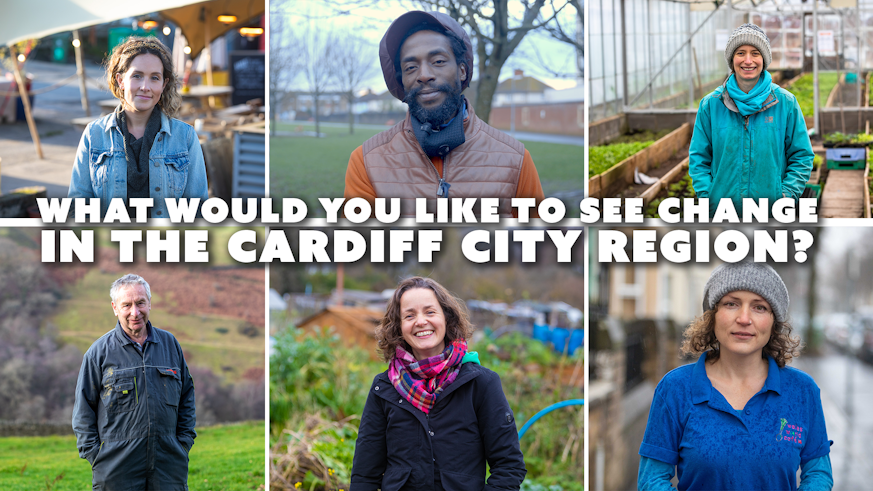Field to Fforc: People’s Assembly on future of food in Cardiff Capital Region
10 February 2021

The Sustainable Places Research Institute, Cardiff University and Food Cardiff are launching a new report and an accompanying video from Field to Fforc: People's Assembly on the future of food in Cardiff Capital Region.
The report shares the views of over 70 people who live and work in the Cardiff Capital Region who came together virtually on the 7th November 2020 to collectively imagine the future of food in the Cardiff Capital Region.
As part of the ESRC Festival of Social Science 2020, the People’s assembly event was organised in partnership by the Sustainable Places Research Institute, Cardiff University and Food Cardiff. Responding to calls for public participation, the event aimed to create space for public dialogue around the future of food in Wales. The event builds upon a number of other online people’s assemblies on food and farming held across Wales since the start of the lockdown. To learn more about people’s assemblies, please refer to our short guide.

Findings from the event have formed the basis of Food Cardiff’s draft sustainable food vision and plan for the city. Individuals and organisations can continue to co-design the strategy during the consultation period running between 15th February and 15th March 2021: visit Food Cardiff to take part.
“Over the past few years we’ve seen a good food movement and a positive drive for change across the Cardiff city region. This was a great opportunity to bring together people from across the region to galvanise this energy and shape what comes next” says Pearl Costello, Food Cardiff’s Sustainable Food Places Co-ordinator.
Alice Taherzadeh, researcher at Sustainable Places Research Institute says: “We believe that food policy for a sustainable and just food system should be co-produced together with not only those who produce and sell food but also consumers and community groups. Creating spaces where people can discuss these issues and feel genuinely heard is crucial to support active food citizenship. As social scientists, we’re interested in how people experience these deliberative democratic processes and the outcomes of bringing different perspectives into conversation with each other.”

The report is available here.

Field to Fforc: People’s Assembly on future of food in Cardiff Capital Region
Field to Fforc: People’s Assembly on future of food in Cardiff Capital Region
If this document cannot be read by your assistive software, you can request an accessible version by emailing web@cardiff.ac.uk. Please include the assistive tools you use and the format you require.
A film made by Mud and Thunder presents the key statements agreed by participants in the event.
Key Statements
The following statements outline what participants in the Field to Fforc People’s assembly would like to see change in the Cardiff Capital Region food system by 2040:
- We want to see more food sustainably produced within our region. This would mean stopping farming practices that degrade soil and supporting farming practices that build soil.
- We want to see more regional food production and a strengthening of regional food economies. This requires more cooperative ways of trading in the Cardiff Capital Region for producers and consumers.
- We need to protect existing green spaces. We want to see an increase in the amount of green space available and being used to grow food.
- We need education on growing, cooking and nutrition at every level – in nurseries, schools, colleges and universities - and within communities.
- We want to see affordable, seasonal, good quality food becoming the norm. This would mean a shorter supply chain and more awareness and appreciation of the real cost of cheap food.
- We want to end food insecurity and to have nourishing and healthy food for all. What if we had ‘healthy corner shops’ where fruit and veg is subsidized?
- We want to see communities working together to shape their local food system. We need more communication through food focused forums and better connections between producers, consumers, public bodies and policy makers so action is joined-up.
- We need a favourable political climate and legal frameworks to accelerate change and prevent practices which harm people or environment.
